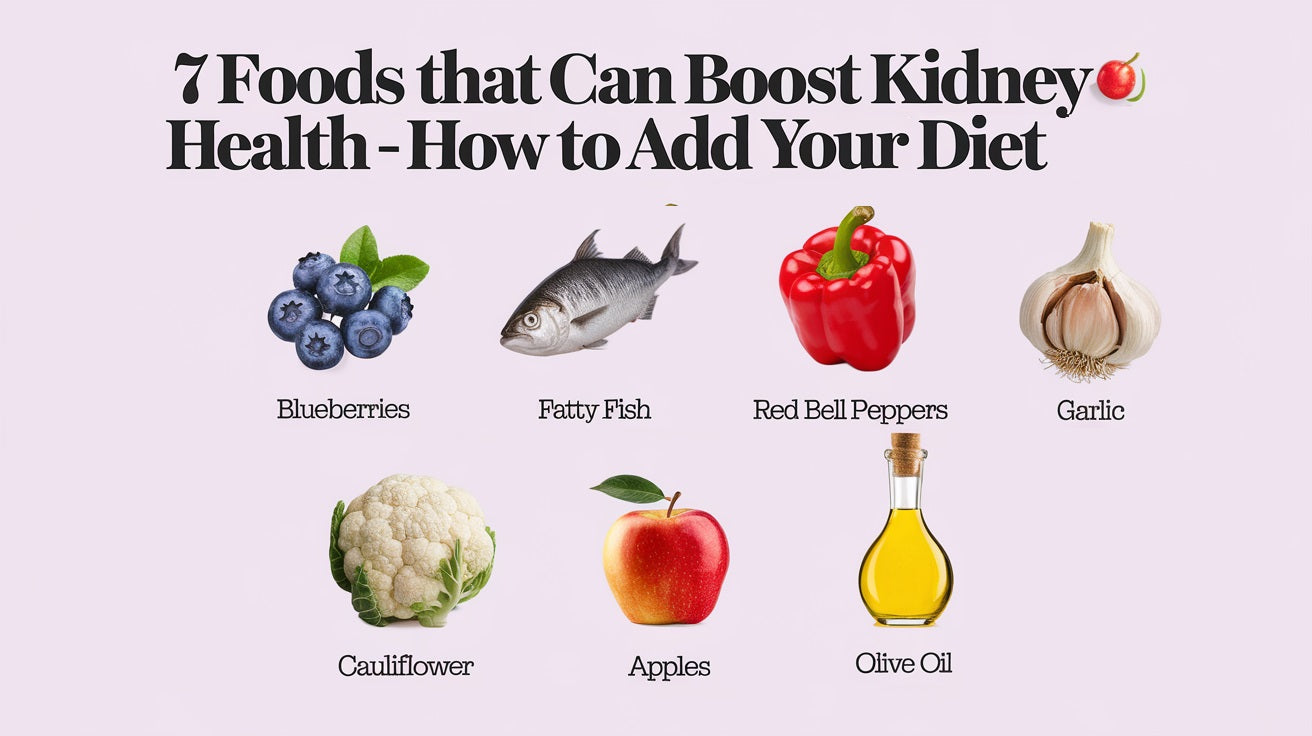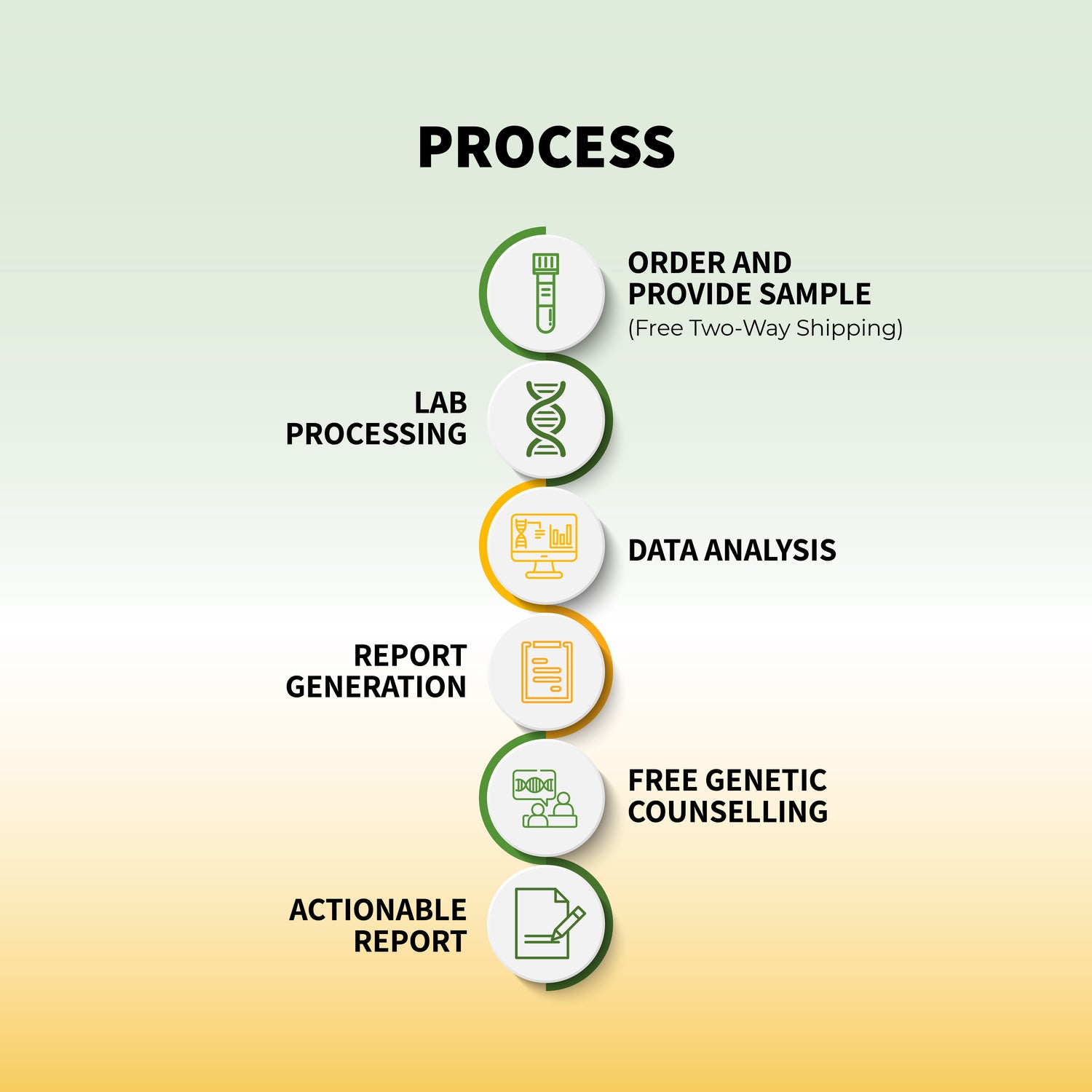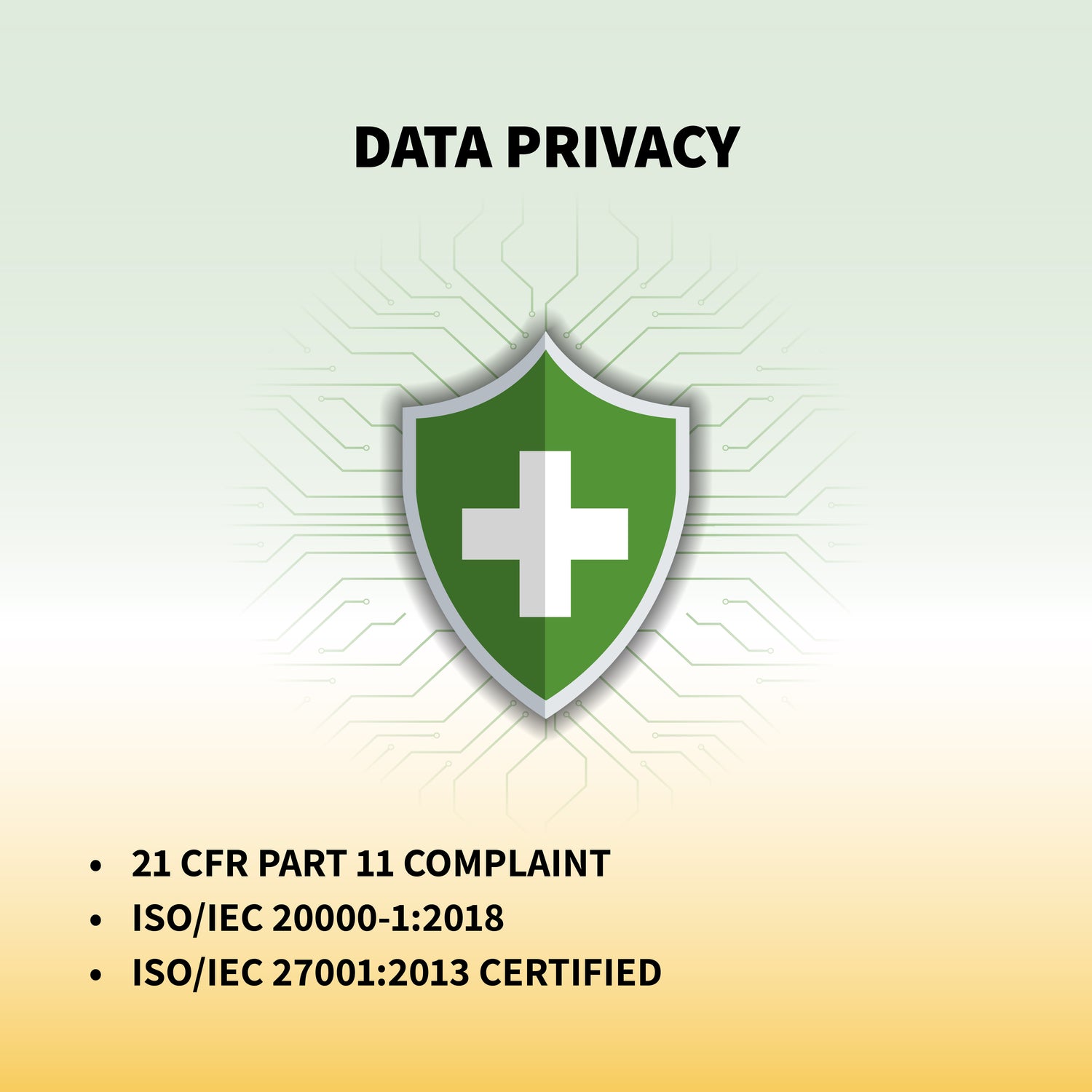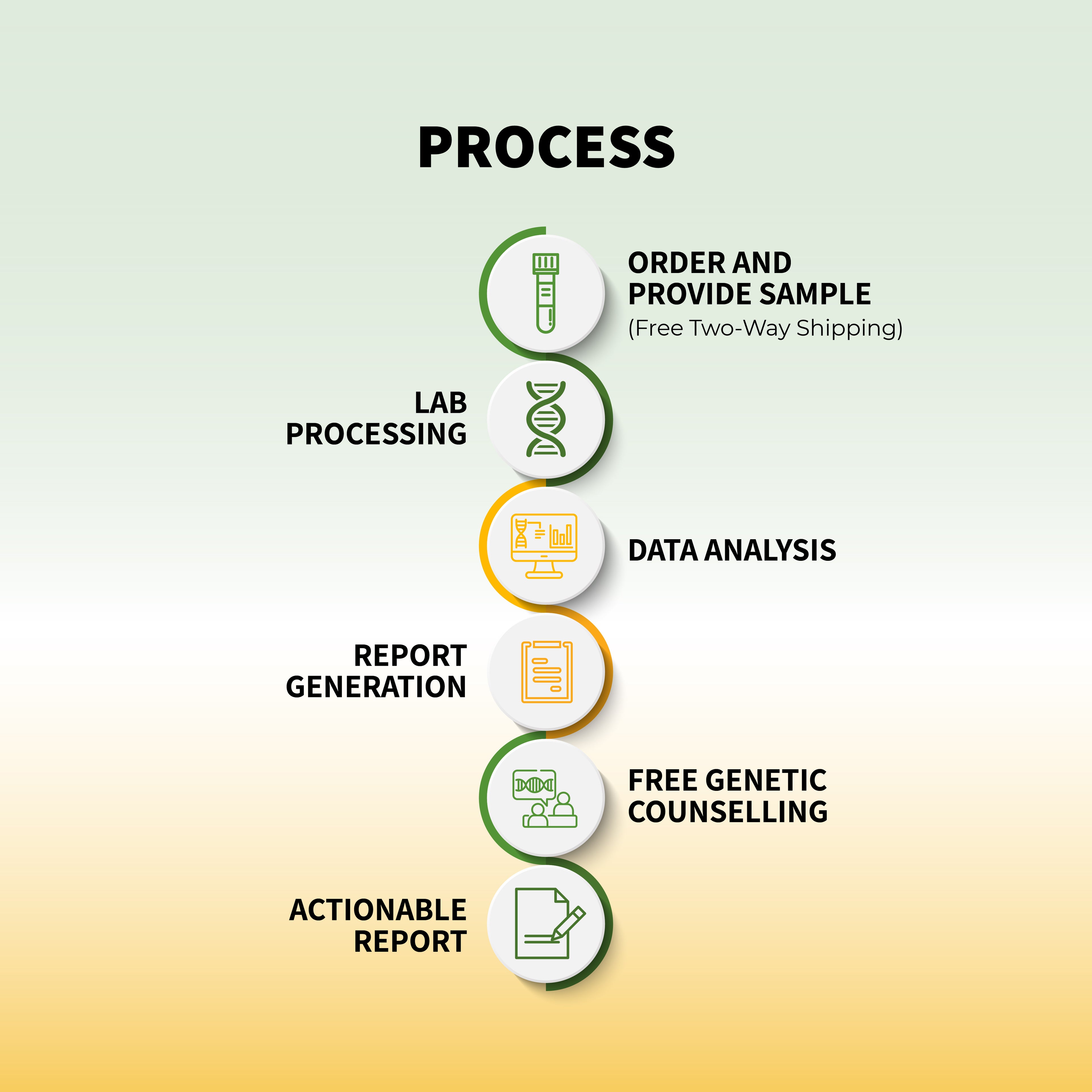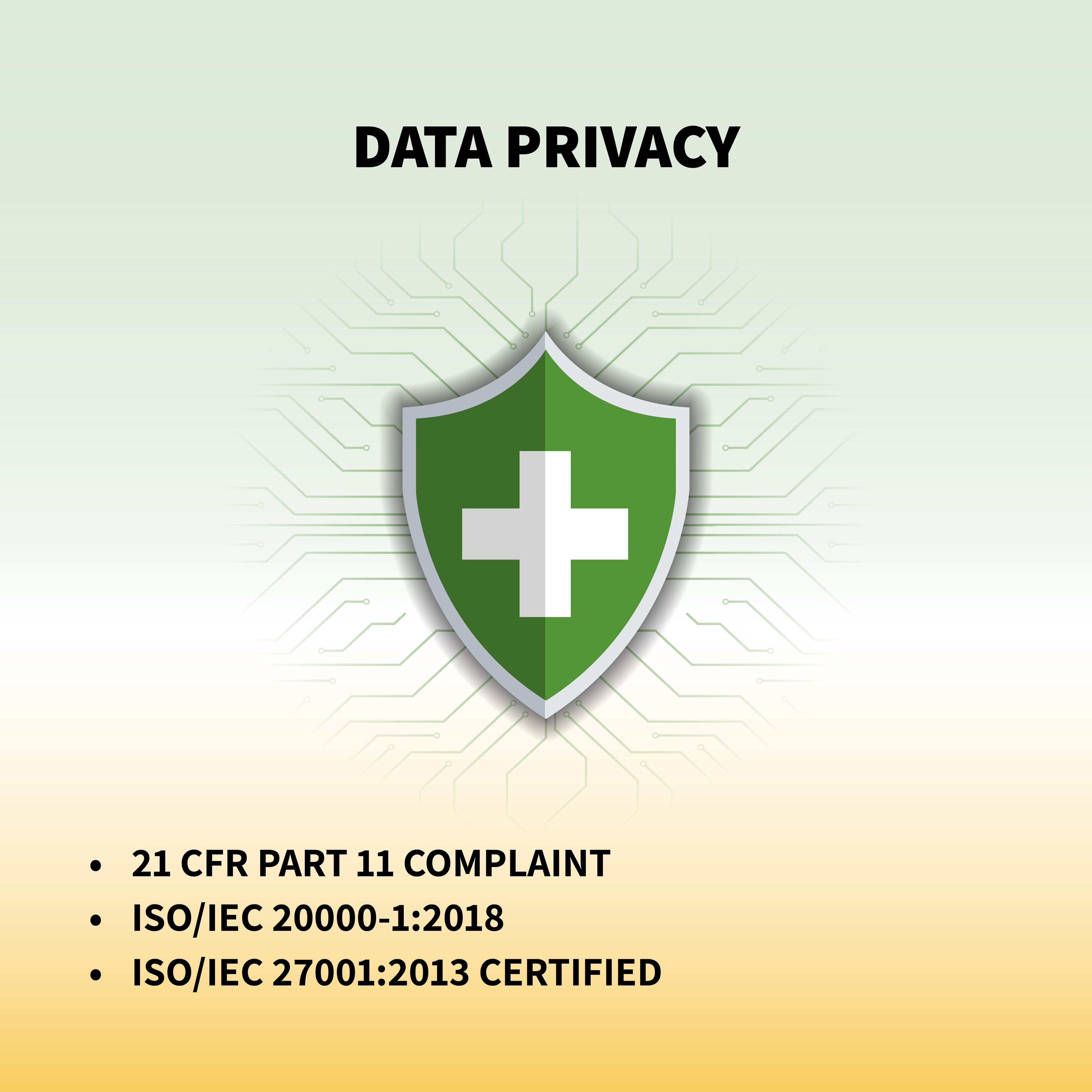Your kidneys play a critical role in filtering waste, balancing fluids, and regulating blood pressure. But with rising incidences of chronic kidney disease (CKD), it's essential to take proactive steps to protect kidney health. Alongside medical management, diet plays a key role in maintaining kidney function and preventing kidney disease. In this blog, we’ll explore seven kidney-friendly foods that can help boost kidney health, prevent kidney pain, and support overall well-being.
If you're concerned about your kidney health or looking to prevent chronic kidney disease (CKD), this guide will help you incorporate foods that can protect and support your kidneys.
1. Blueberries: Antioxidant Power for Kidney Health
Blueberries are packed with antioxidants, especially anthocyanins, which protect cells from oxidative damage. Chronic kidney disease is often linked to oxidative stress and inflammation, and consuming antioxidant-rich foods like blueberries may help reduce this damage.
Why it’s good for your kidneys:
- Reduces oxidative stress on kidney cells
- Helps in managing blood pressure, which is crucial for kidney health
- Low in potassium, making it ideal for individuals with CKD
How to add them to your diet:
Top your morning cereal with a handful of fresh blueberries, blend them into smoothies, or enjoy them as a snack.
2. Fatty Fish: Omega-3s for Reduced Inflammation
Fatty fish like salmon, mackerel, and sardines are excellent sources of omega-3 fatty acids, which have anti-inflammatory properties. Inflammation can worsen kidney function, especially in those with chronic kidney disease (CKD). Omega-3s also help in managing blood pressure and reducing the risk of heart disease, both of which are important for overall kidney health.
Why it’s good for your kidneys:
- Reduces inflammation that may contribute to CKD
- Helps manage high blood pressure, reducing stress on kidneys
- Provides essential protein without overburdening kidneys
How to add it to your diet:
Include fatty fish in your meals at least twice a week. Grill or bake them with herbs for a heart-healthy, kidney-friendly dish.
3. Red Bell Peppers: Low in Potassium, High in Nutrients
Red bell peppers are low in potassium but high in important nutrients like vitamin C, vitamin A, and fiber. For those managing CKD, limiting potassium intake is essential, especially in later stages of kidney disease. Red bell peppers provide essential nutrients without adding too much potassium to your diet, supporting kidney health without overburdening kidney function.
Why it’s good for your kidneys:
- Low potassium content makes it kidney-friendly
- Rich in antioxidants that protect kidney cells
- Supports heart health, indirectly benefiting kidneys
How to add them to your diet:
Chop red bell peppers into salads, roast them as a side dish, or add them to stir-fries for a kidney-friendly boost.
4. Garlic: Flavorful and Kidney-Protective
Garlic is a powerful anti-inflammatory and antioxidant food that supports kidney health. It helps in reducing inflammation and has the added benefit of lowering cholesterol levels and improving blood circulation, which can be beneficial for people with CKD or at risk of kidney disease.
Why it’s good for your kidneys:
- Reduces inflammation that can harm kidneys
- Supports healthy blood circulation, which is crucial for kidney function
- Provides a flavorful alternative to salt, reducing sodium intake
How to add it to your diet:
Use fresh garlic to season your meals, add it to sauces, or roast it for a rich, savory flavor without excess sodium.
5. Cauliflower: A Low-Potassium, Kidney-Friendly Veggie
Cauliflower is a low-potassium vegetable rich in fiber, vitamins C and K, and anti-inflammatory compounds like indoles. Since managing potassium is crucial for those with chronic kidney disease (CKD), cauliflower is a perfect vegetable choice for supporting kidney function while providing essential nutrients.
Why it’s good for your kidneys:
- Low potassium content is beneficial for kidney disease management
- High in fiber, aiding digestion and preventing kidney strain
- Anti-inflammatory properties help protect against kidney damage
How to add it to your diet:
Steam or roast cauliflower as a side dish, or mash it as a substitute for potatoes for a kidney-friendly, low-potassium option.
6. Apples: Heart-Healthy and Kidney-Friendly
Apples are a fantastic fruit choice for kidney health. They are high in fiber, particularly pectin, which helps lower cholesterol and manage blood sugar levels—two factors that can have a significant impact on kidney function. Apples also have anti-inflammatory properties and are low in potassium, making them a safe option for individuals with CKD.
Why it’s good for your kidneys:
- Helps manage cholesterol and blood sugar levels, reducing kidney strain
- Low in potassium, making it ideal for CKD patients
- Supports heart health, indirectly benefiting kidneys
How to add them to your diet:
Eat apples raw as a snack, bake them into healthy desserts, or add them to salads for a sweet, crunchy bite.
7. Olive Oil: Healthy Fats for Kidney Support
Olive oil is an excellent source of healthy fats that promote kidney health by reducing inflammation and supporting heart health. A diet rich in healthy fats can help manage blood pressure and reduce the risk of kidney disease progression. Unlike saturated fats, olive oil provides essential nutrients without burdening your kidneys.
Why it’s good for your kidneys:
- Reduces inflammation, which is critical for protecting kidney function
- Supports healthy cholesterol levels and blood pressure management
- Helps in reducing oxidative stress on kidney cells
How to add it to your diet:
Use olive oil for cooking, drizzle it over salads, or use it in place of butter for a kidney-friendly fat source.
How Diet Impacts Kidney Health
The kidneys are responsible for filtering waste, excess fluids, and toxins from the blood. However, chronic kidney disease (CKD) and kidney pain can arise from various factors, including high blood pressure, diabetes, or genetic predisposition. Once kidney function is compromised, it’s difficult to reverse the damage. However, diet plays a key role in maintaining kidney health and preventing the progression of kidney disease.
By incorporating kidney-friendly foods into your daily routine, you can support your kidneys in performing their essential functions. Foods that are rich in antioxidants, anti-inflammatory properties, and low in potassium can help manage CKD, reduce the risk of kidney disease, and even prevent kidney pain.
Conclusion: Protect Your Kidneys with the Right Foods
Taking care of your kidneys is essential for overall health, especially if you're at risk of chronic kidney disease or already managing CKD. Incorporating these seven foods into your diet can provide the necessary nutrients and support kidney function, reduce inflammation, and prevent kidney pain.
Remember, managing kidney health is a long-term commitment. With the right diet and lifestyle choices, you can reduce your risk of kidney disease, support your kidneys, and maintain optimal kidney function.


